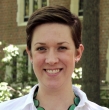Projects for Peace Alumni Award (graduates)
Campus Deadline: 12:00 pm (noon) EST on January 29, 2024
The Projects for Peace Alumni Award seeks to recognize individuals who demonstrate innovation and persistence in building peace and transforming conflict.
Projects for Peace is a global program that partners with educational institutions to identify and support young peacebuilders and changemakers. The program encourages young adults to develop innovative, community-centered, and scalable responses to the world’s most pressing issues. Along the way, these student leaders increase their knowledge, improve skills, and begin to see themselves as agents of change. Since 2007, Projects for Peace has worked with approximately 115 colleges and universities to support almost 2000 projects.
Each year, the Projects for Peace Alumni Award will award up to $50,000 to support the continuing peacebuilding efforts of a past Projects for Peace grantee. The Award is made possible through the Kathryn Wasserman Davis Collaborative in Conflict Transformation at Middlebury. Read here about the inaugural recipient of the Alumni Award, Joseph Kaifala, who was one of the first recipients of the summer Projects for Peace award as a UWC Scholar at Skidmore!
Award benefits:
-
Winners receive up to $50,000.
-
Winners will attend a multiday Conflict Transformation retreat at Middlebury College, with an opportunity to discuss their work with the Conflict Transformation community at Middlebury.
-
The Kathryn Wasserman Davis Collaborative in Conflict Transformation at Middlebury expects to fund at least one award each year through 2028.
How might the award be spent?
- As part of the Projects for Peace Alumni Award application, candidates are asked to demonstrate the impact that the award would have on their ongoing peacebuilding or conflict transformation efforts. Developing a financial plan that outlines the estimated costs of items, activities, and/or programming they anticipate funding through the award helps the selection committee understand candidates' ambitions.
- The award can be used towards professional development in a relevant field (including graduate studies, research, or training in conflict resolution, peace/conflict studies, etc.). Other possible uses include charitable donations; funding for new or existing nonprofit organizations; or a combination of uses. We hope that each applicant’s submission will propose uses that thoughtfully contribute to peacebuilding and/or conflict transformation.
Expectations of awardees - in the year following award, winners will be asked to:
- Write brief 6-month and 1-year reports reflecting on implementation, impact, and lessons learned. Receipts/full financial accounting is not required in these reports. Instead, a general update on major expenditures is requested, with commentary on notable challenges, successes, and/or deviations from the original financial plan.
- Attend a multiday conflict transformation convening at Middlebury College, with an opportunity to engage with the conflict transformation community at Middlebury.
- Participate in a reflection session with Projects for Peace and the Conflict Transformation Collaborative at the end of the first year (virtual or in-person).
Eligibility
Who is eligible?
-
Applicants must have implemented a Project for Peace any time in the history of the program. The applicant’s name must appear on the approved final report submitted at the conclusion of their Projects for Peace grant.
-
Applicants must be nominated by the educational institution which supported their Project for Peace (i.e., Wellesley College). No direct-apply or “at-large” applications will be accepted.
-
Past nominees may re-apply if they wish!
What makes a strong application for this fellowship?
-
Evidence of enduring commitment to the pursuit of peacebuilding. Applicants need not
be currently working on the same issues, or using the same approaches, as their original
Project for Peace. -
Evidence of innovation and creativity in approaches to peacebuilding and conflict
transformation. -
Commitment to community engagement as well as public sharing of actions and impact.
-
Demonstration of how conflict transformation does integrate, or could integrate, with their
peacebuilding approach. -
Evidence of productive engagements with conflicts that may underlie targeted issues.
Conflict transformation moves from destructive “us versus them” dynamics to patterns of
constructive engagement, understanding and problem-solving. -
Evidence of critical reflection on progress to date, and consideration of how their work
could be expanded and/or revised. -
Regardless of their citizenship, applicants must adhere to Wellesley's travel policy for students and graduates. (Questions may be referred to fellowships@wellesley.edu.)
-
Read more about the Projects for Peace on their website.
How do I apply?
- All Wellesley College candidates for the Projects for Peace program must undergo the Wellesley College campus review and nomination process. Wellesley may nominate one candidate each year to go forward to the national competition.
-
Regardless of their citizenship, applicants must adhere to Wellesley's travel policy for students and graduates. (Questions may be referred to fellowships@wellesley.edu. We're glad to talk over any concerns you may have.)
-
See the application checklist and timeline for details of application materials.
-
Interested applicants are warmly encouraged to book a Fellowships advising appointment through Handshake, to talk with a member of the Fellowships team. (Cannot find an available appointment? Drop by Fellowships Pop-Up Advising: no appointment required; see our Events listings for details.)
Application checklist
Please submit these materials via this form (or email to fellowships@wellesley.edu):
☐ Completed application in accordance with the official instrucations here, being sure to adhere to the official Projects for Peace formatting instructions (including 1” margins, 10 pt Arial font, Word doc).
☐ Completed numerical budget as an Excel sheet.
☐ Resume/CV as a PDF.
☐ Your original Projects for Peace Proposal and Final Report. (These may be downloaded from the Projects for Peace website.)
☐ Candidate Release & Signature as a PDF. (Download as a Word document, fill out, sign, and save as a PDF for uploading.)
☐ Wellesley Fellowships office signature document (please print, sign & date this form, then submit a scanned pdf or other image of the signed document along with your application materials)
☐ Please also request that 2 people write letters of reference: both of them should be willing and able to speak to your peacebuilding efforts. For example, they may be project collaborators, course instructors, workplace supervisors, etc. Please give your recommenders this link to support their letters; should they encounter any difficulty, they may email letters to fellowships@wellesley.edu.
Application timeline
fall
Application information shared with partner institutions.
Campus Deadline: 12:00 pm (noon) EST on January 29, 2024
Applications should be submitted for Wellesley’s nomination. Wellesley may nominate no more than one applicant.
February
Nominated applications will be reviewed, and finalists selected.
March
Finalists will be interviewed, and may be asked to submit additional information.
April
Winner notified.
Summer
Winner(s) attends a multiday Conflict Transformation retreat at Middlebury College, with an opportunity to discuss their work with the Conflict Transformation community at Middlebury.
Questions?
Email fellowships@wellesley.edu or call Caitlin Roberts-Donovan at 781.283.2347.







